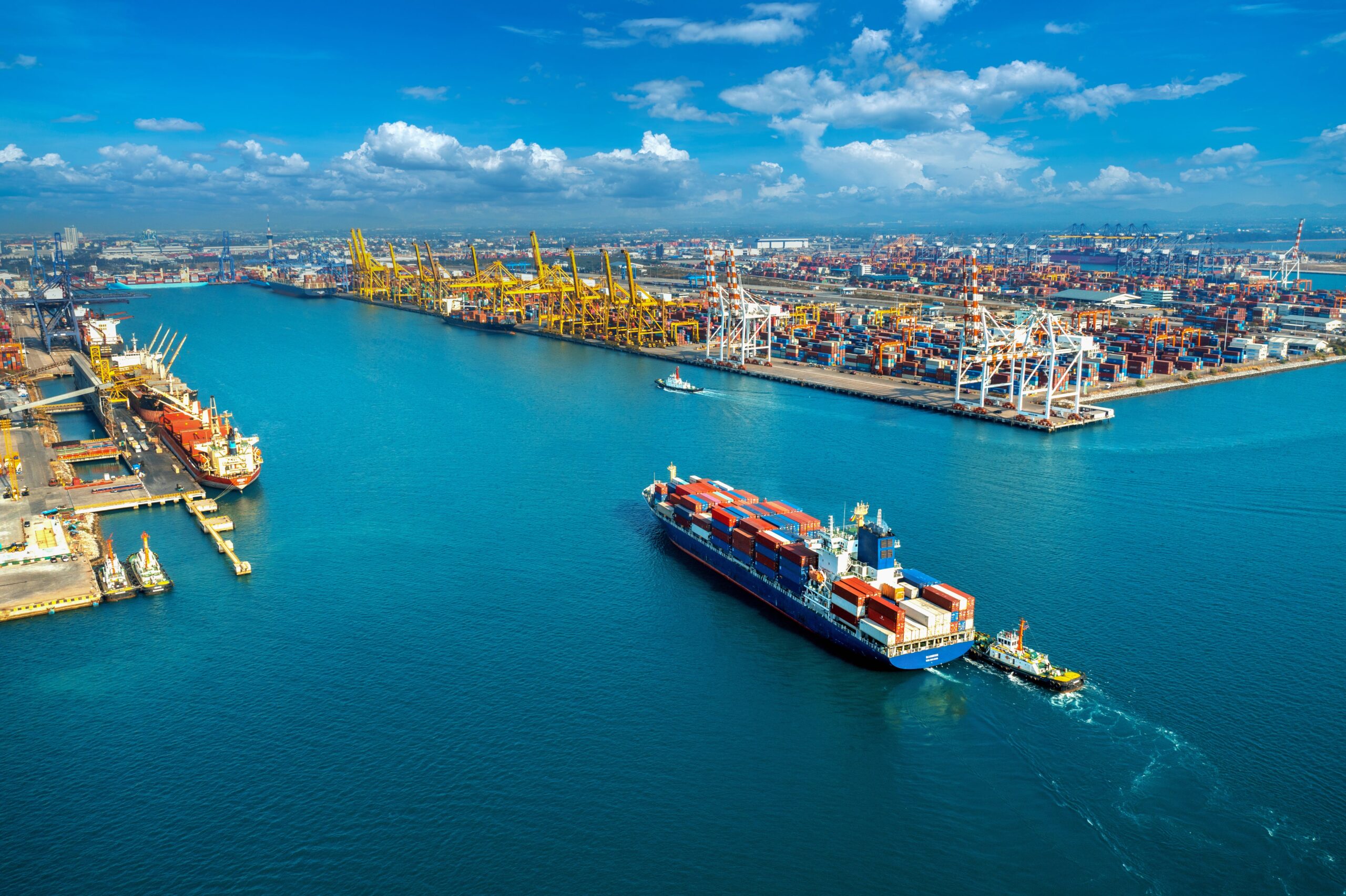Introduction
The United Arab Emirates (UAE) is renowned for its thriving economy and its strategic location as a global trade hub. At the heart of this economic success are the ports that connect the UAE to the world. Among them, Dubai, the commercial capital of the UAE, stands out with its impressive array of ports. In this blog, we will explore the ten major ports in Dubai and the UAE, diving into their significance, infrastructure, and the pivotal role they play in facilitating international trade and commerce.
Port of Jebel Ali
The Port of Jebel Ali, located in Dubai, is the largest man-made port in the world. Its strategic location, state-of-the-art facilities, and unparalleled connectivity have made it a vital gateway for both containerized and non-containerized cargo. We will delve into its infrastructure, highlighting its deep-water berths, free zone benefits, and its role in driving the UAE’s economic growth.
Port Rashid
Considered the oldest commercial port in Dubai, Port Rashid has transformed into a multi-purpose facility catering to various industries. With its advanced container terminal and extensive storage capacity, it plays a crucial role in supporting the city’s maritime trade and cruise tourism.
Khalifa Port
Situated in Abu Dhabi, Khalifa Port is a major maritime hub that has rapidly emerged as a key player in the region. Equipped with world-class infrastructure and advanced technologies, it serves as a vital link for imports, exports, and transshipment activities, fostering the UAE’s economic diversification plans.
Zayed Port
Formerly known as Mina Zayed, Zayed Port has a rich history in Abu Dhabi. Although its commercial operations have been phased out, it continues to handle naval and cruise vessels, serving as a reminder of the city’s maritime heritage.
Port of Fujairah
Dubbed the energy port of the UAE, the Port of Fujairah is strategically located on the east coast. We will explore its significance as a major oil and gas hub, its diverse range of services, and its pivotal role in ensuring the smooth flow of energy resources in the region.
Hamriyah Port
Hamriyah Port, situated in Sharjah, is a thriving free zone that offers a comprehensive range of maritime services. We will examine its facilities, including its deep-water berths and extensive industrial areas, showcasing its contribution to the UAE’s industrial and economic development.
Port of Khor Fakkan
As one of the world’s leading container transshipment hubs, the Port of Khor Fakkan enjoys a strategic location on the Gulf of Oman. We will delve into its state-of-the-art infrastructure, advanced container terminal, and its role in facilitating global trade by connecting various shipping lines.
Port of Ajman
Although relatively smaller in size, the Port of Ajman is a vital contributor to the UAE’s trade activities. We will explore its strengths, including its focus on containerized cargo, bulk cargo handling, and its contribution to the growth of Ajman’s economy.
Port of Sharjah
Sharjah, known for its rich cultural heritage, is also home to the Port of Sharjah. This bustling seaport has been a key player in the emirate’s industrial and commercial growth. We will highlight its cargo handling capabilities, specialized terminals, and its commitment to sustainable practices.
Port of Abu Dhabi
Completing our list is the Port of Abu Dhabi, a vital maritime gateway for the UAE’s capital. We will examine its strategic location, its focus on containerized and general cargo, and its role in supporting Abu Dhabi’s economic diversification plans.
Conclusion
The ten major ports in Asia, Dubai and the United Arab Emirates are the lifeblood of the country’s thriving economy. They serve as critical gateways for international trade, connecting the UAE to markets around the world. From the massive Port of Jebel Ali to the specialized terminals in Sharjah and Abu Dhabi, each port plays a unique role in supporting various industries and facilitating economic growth.
These ports boast world-class infrastructure, cutting-edge technologies, and efficient operations that ensure the smooth flow of goods, whether it’s containerized cargo, bulk shipments, or energy resources. The ports’ strategic locations along major shipping routes have attracted global shipping lines, making the UAE a key player in the global maritime industry.
Moreover, several ports are complemented by dedicated free zones, offering businesses attractive incentives and streamlined customs procedures. Main thing we need to proper communication with relocation company. These free zones have fostered economic diversification, attracting foreign direct investment and nurturing industries such as logistics, manufacturing, and trade.
Beyond their economic significance, these ports contribute to the development of the UAE’s tourism sector. Ports like Port Rashid serve as primary cruise terminals, welcoming thousands of tourists to experience the country’s rich cultural heritage and modern attractions.
As the UAE continues to invest in expanding and enhancing its ports, they are poised to play an even greater role in the country’s ambitious economic plans. With ongoing infrastructure developments, increased automation, and a focus on sustainability, these ports will continue to drive the UAE’s position as a global trade hub.
The ten major ports in Dubai and the UAE are instrumental in facilitating international trade, supporting economic diversification, and positioning the country as a key player in the global maritime industry. With their world-class facilities, strategic locations, and commitment to innovation, these ports are poised to shape the future of trade and commerce in the UAE.

